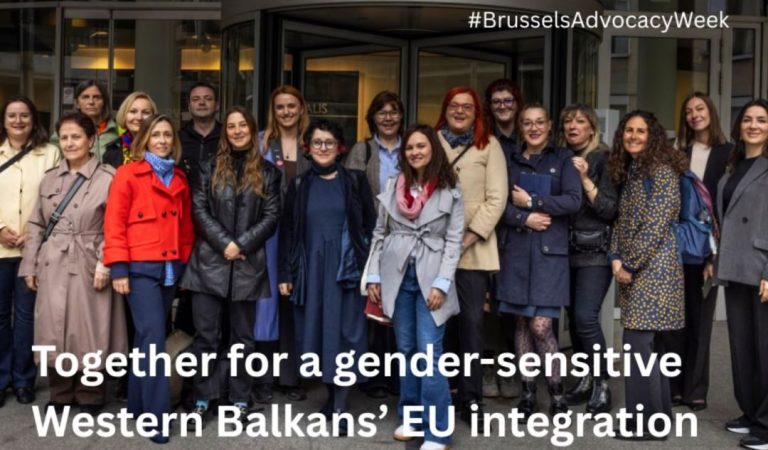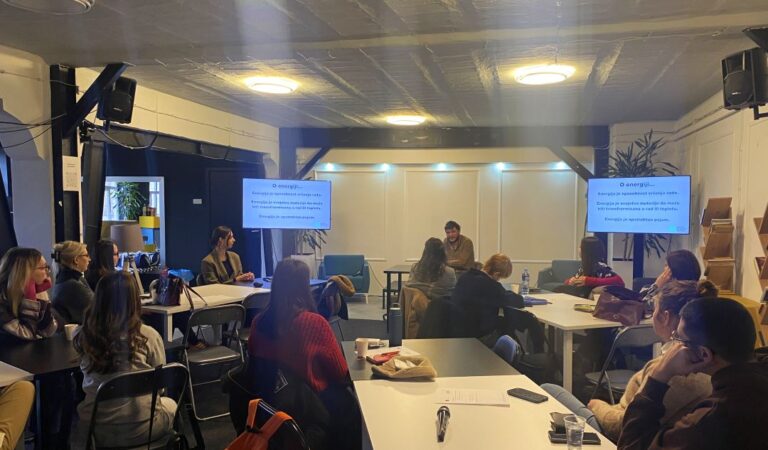The A 11 – Initiative for Economic and Social Rights implemented its first annual School of Economic and Social Rights, between 7 November and 19 December 2020. As a result of the COVID-19 pandemic, the lessons had to take place online, via Zoom. Although this in itself presented an challenge, it also allowed us to provide the opportunity for participation to individuals outside the territory of Serbia.
During the seven weeks of the program, we addressed various issues related to economic and social rights. At the onset we dealt with the place of economic and social rights in the human rights protection framework, States’ obligations to respect, protect and fulfill economic and social rights, and how we might seek protection of these rights in front of judicial and quasi-judicial bodies.
We also discussed individual rights from the body of economic and social rights, such as the right to the highest attainable standard of physical and mental health, the right to adequate housing as a component of the right to adequate living, the right to social protection and the right to education. We dedicated a segment of the program to workers’ rights as well.
In addition, we dedicated a session to access to economic and social rights of particularly vulnerable groups, focusing particularly on women, persons with disabilities, refugees and asylum seekers, while we devoted the last regular session to the effect of economic policies on poverty and the realization of aforementioned rights.
Some of the sessions involved guest lecturers, such as Mario Reljanović, Research Associate at the Institute of Comparative Law; Nevena Vučković Šahović, former member of the Committee on the Rights of the Child; Kosana Beker, Program Director of the Association of Female Citizens FemPlatz, Damjan Tatić, former member of the Committee on the Rights of Persons with Disabilities, and Lazar Stefanović, PhD candidate at the Law Faculty of the University of Vienna and associate of MDRI-S.
Apart from the aforementioned lectures, we also had so-called “additional sessions” that were dedicated to the monitoring of economic and social rights and the tools therefor. One of these sessions was led by Francesca Feruglio of the Economic, Social and Cultural Rights Network (ESCR-Net), a network that brings together leading organizations and experts in the field of economic, social and cultural rights; while another session was held by Mihir Mankad of the Center for Economic and Social Rights (CESR), an organizations that has been dealing with the international protection of economic and social rights for over 20 years and which brought various innovations into human rights monitoring. One of these additional sessions was held by Soheir Asaad from the Palestinian organization Adalah, which provides legal aid to Palestinians in Israeli occupied Palestinian territories and in Israel, on the subject of justiciability of economic and social rights in the colonial context.
“The A 11 team and guest lecturers led us through this experience with great enthusiasm, sharing theoretical and legal knowledge, but also ample experience from practice, strengthening our motivation to work on the protection and promotion of human right, which is sorely needed in these strange times,” said Sara Lalić from the Center for Peace Studies from Zagreb (Croatia), who participated at the first School of Economic and Social Rights.
There was great interest in participation at the School, and ultimately 34 applicants were accepted, out of which 29 completed the course successfully and received a certificate of completion. The participants were extremely engaged, interested and active throughout the School, and made this first year a tremendous experience, one that brought to light a great interest in the subject of economic and social rights among various individuals. This compels us to continue organizing the School in the future, as well as continuously improve it.
After participating in the program, Valentina Lepojević of FemPlatz expressed her opinion that “it is very important to give attention to economic and social rights – rights that are necessary if citizens are to live quality lives,” as well as that “in order to understand these rights and how they are to be given effect, it is necessary to inform and educate ourselves about them,” and that this is wherein the value of this program lies.
Sandra Kasunić of the Center for Peace Studies, another participant of the School, was of a similar opinion and state that “the reality in which we live shows us that social and economic rights are still neglected and ignored, while, on the other hand, global socioeconomic inequalities are constantly growing. This is why it is important that educational programs such as the School for Economic and Social Rights exist, as they enable us to gain knowledge on theory and practice relevant to the application of these rights, as well as provide space for the exchange of ideas, experiences and inspiration concerning how to include critical consideration of sociopolitical circumstances into our human rights struggles.”
Her colleague Sara Lalić found that the School had added value insomuch as it enabled her to “distance herself from her everyday work and recall the key aspects of the international framework for the protection of social and economic rights, and critically evaluate the state of social and economic rights in both our societies and globally.”
We would hereby like to once again express our gratitude to all those who participated in the first School of Economic and Social Rights. We feel that the engagement of all individuals is necessary in the struggle for the advancement of economic, social and other human rights. The participants, by virtue of their participation, contributed to the development of a dialogue on economic and social rights, and their equal importance to civil and political rights, moving away from the notion that they are second-class rights – as all human rights are universal, indivisible and interdependent and interrelated.



